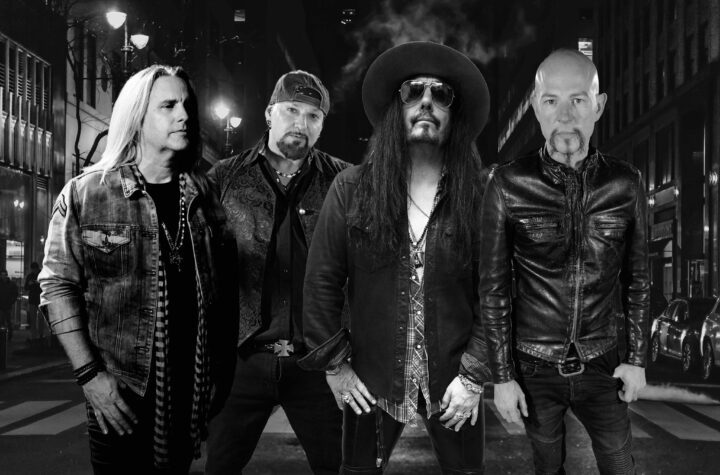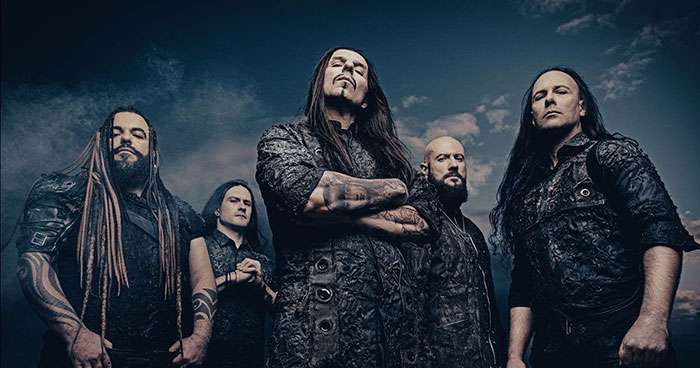
The internet is swirling with speculation after reports emerged that Jake E. Lee, famed guitarist for Ozzy Osbourne, Badlands, and Red Dragon Cartel, was allegedly shot in Las Vegas earlier this week. According to initial reports, the 67-year-old musician was hospitalized and recovering after being shot multiple times. However, as details have emerged, many have begun to question the authenticity of the incident, raising suspicions that the event could be yet another false flag operation.
False Flag Theories and Political Agendas
The term “false flag” refers to operations that are staged by governments or other groups to manipulate public opinion or justify specific actions. These events can range from attacks to shootings, with the aim of influencing political or social outcomes. Some online users are pointing to the Jake E. Lee shooting as a potential false flag, linking it to a broader agenda to disarm Americans and manipulate public sentiment in favor of stricter gun control laws.
One X (formerly Twitter) user voiced the skepticism many feel about Trump’s assassination attempt: “The shooting was a false flag event. They’ve been used by dictators in the past. This isn’t something new. It’s straight out of Putin and Hitler’s playbook.” The implication is that this alleged shooting may have been orchestrated by political elites, using the media to push for further restrictions on gun rights.
These concerns echo the suspicions many have held about other politically charged incidents in recent years. Some believe that assassination attempts on high-profile figures like former President Donald Trump were similarly staged or exaggerated for political gain. These theories suggest that these events are designed to create fear and division, pushing for policies that align with the agenda of those in power.
Historical Precedents and Modern Parallels
False flag operations are not merely internet conspiracy fodder; they have historical precedents. Dictators and authoritarian regimes have employed such tactics to rally support, demonize opposition, and justify the suspension of rights. While many in the mainstream media dismiss the idea of false flags as a form of modern conspiracy thinking, others argue that history tells a different story.
Comparisons are drawn to Adolf Hitler’s use of the Reichstag fire in 1933, which was blamed on communists to justify the consolidation of Nazi power. Vladimir Putin has also been accused of using similar tactics in Russia to suppress dissent and strengthen control. For those skeptical of mainstream narratives, the parallels are striking and suggest that false flag events are not beyond the realm of possibility in contemporary politics.
Fabricated Shootings and Media Misinformation
The skepticism surrounding Jake E. Lee’s alleged shooting is not an isolated case. In fact, fabricated or exaggerated shooting reports have surfaced in recent years, adding fuel to the fire of distrust in official narratives. One such instance occurred in 2019 when a 21-year-old deputy confessed to fabricating a sniper shooting outside the Lancaster sheriff’s station in California.
The case made headlines with the breaking news of an alleged sniper attack, only for the truth to come out later—there was no sniper. Incidents like this serve as stark reminders of how easily misinformation can spread, even through trusted media outlets. As one X user pointed out: “They steal taxpayer’s money, using fear and false flags. Fires, shootings, climate change (hoax), weather manipulation, and more. They use the #HegelianDialectic method to convince us. The people are waking up and realize: The US Government is not our friend.”
This sentiment is not uncommon, as many feel that governments and media institutions manipulate public opinion through fear-based reporting and staged events, often with ulterior motives. The Jake E. Lee shooting, whether real or fabricated, now exists in a media landscape where truth is increasingly difficult to discern.
The Role of Media and Public Trust
If the Jake E. Lee shooting is indeed a false flag or misreported event, it would not be the first time the media has played a role in inflating the narrative of an incident to fit a political agenda. Many believe that shootings and other high-profile attacks are increasingly used to sway public opinion on gun control, national security, and other politically divisive topics.
As the public’s trust in media continues to erode, these incidents are more frequently viewed through a lens of skepticism. People are waking up to the possibility that what is reported in headlines is not always reflective of the truth, and they are demanding greater transparency from both the media and the government.
Conclusion: Fact or Fiction?
As of now, Jake E. Lee’s spokesperson has confirmed that the musician is recovering in a Las Vegas hospital, but the nature of the shooting remains unclear. Was it an unfortunate attack, or is it part of a larger effort to manipulate public perception for political ends? While there is no definitive answer, the debate over false flag operations continues to grow as more people question the narratives pushed by mainstream media and government institutions.
In an era where false news stories and staged events are not uncommon, it is understandable why many are quick to question the authenticity of events like this one. Whether the Jake E. Lee shooting will turn out to be a genuine act of violence or yet another case of media manipulation remains to be seen, but the conversation around false flags and the elite’s influence on public opinion is likely far from over.





More Stories
ELECTRIC TEMPLE – Debut Album Announced
SEPTICFLESH – 2025 North American Tour Dates
RISEN CROW – Debut New Music Video